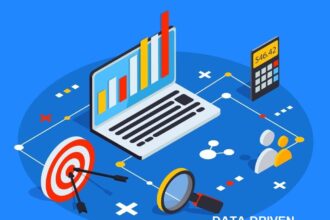There is no doubt that big data is important in many organizations. Over 65% of large companies invested over $50 million in big data in 2020. That figure is growing faster in recent years.
Data. The word gets used so often that it’s become vague. You are talking about data, sure, but what kind of data? Finding the right data sets and knowing how to use them is key to any data implementation strategy.
In this article, we take a look at three different sets of goals your business might have—branding, marketing, expansion. We will then take a direct look at what sort of data sets you can use to improve these efforts. Read on to learn more about how you can revolutionize your data implementation strategy.
Creating a Data Strategy for Branding
Modern consumers are almost as concerned with what a company believes in as they are in what it sells. Branding is an important part of thriving in the modern business world, but it can also be a difficult art to master.
Without the right intel, it involves a lot of guesswork. And of course, mistakes come at the cost of public opinion and sales. To find out what sort of branding initiatives a business should adopt, they should begin with several different large data sets.
- How do people currently view your brand?: Getting an answer to this question is important for several reasons. Naturally, it’s good to know where you are at. If there is a serious problem with our public image, or if it simply does not reflect what you are hoping it will be, this is how you are going to find out. This data point will also give you a good idea of what direction to take your future rebranding efforts. Unless there is a very compelling reason to do so, it’s usually better not to go sharply against the grain of public opinion. Doing so runs the risk of coming across as disingenuous. Instead, emphasize branding initiatives that improve public precepts that already exist.
- Who is your existing demographic?: This data point will tell you a lot about what sort of points to emphasize. For example, if you find out that the majority of people who use your business are millennials, you can assume that certain, activist or social justice-oriented adjustments to your public perception may be met with appreciation. For example, millennials are very concerned with the environment. Being the business that recycles, or avoids carbon emissions can be a big boon.
With all branding efforts, it’s important to practice what you preach. If you are the company that cares about the environment, you can’t also be the company that dumps chemicals in the river. In other words, be less like Leanardo DiCaprio talking about climate change from his private plane, and more like George Clooney getting arrested at a mass demonstration.
Taking Stock of Marketing Initiatives with Big Data
Marketing when done right is a critical business asset. Big data is helping improve the marketing profession dramatically. When it’s done wrong, however, enormous amounts of effort and money are wasted. The old marketing practice of throwing things on the wall and seeing what sticks is no longer needed in the age of Big Data.
With Big Data you can learn:
- Who you dealing with: If your customers are stuffy business people, they probably aren’t going to appreciate a marketing campaign with say, a talking cactus. If they are Generation Z, they might be more receptive to something light and humorous.
- Where they are: We mean online, of course. Social media is a huge marketing opportunity but it’s important to target your markets carefully. Use data sets to make predictable, accurate assumptions about where to reach your audience. For example, if you find that most of your customers use Twitter, you needn’t waste much time dealing with Facebook.
- When to deal with them: Timing is everything. Say you’ve found out that your base spends most of their online time on Twitter. Great intel, right? The only problem is that Twitter runs around the clock. Your ads might not. Using social media analytics, you can learn not only who is engaging with your ads, but also when they are doing it. You might learn that get most of your engagements in the afternoon. Knowing this, you can funnel the majority of your marketing efforts towards a time slot that is most likely to produce great results.
Not only does data implementation in marketing have the potential to produce big returns, but it also helps you to avoid wasting money. With data, you can make sure that no more cash goes down the trains on bad wasted marketing efforts.
Opportunity
Let’s say you are a retail franchise that wants to open up a new location. What has to happen to make this go well?
You need to know:
- Market size: How many people live in the area you are considering for a location?
- Location: Is the spot you are looking for in a place that will naturally get a lot of traffic?
- Demographic: What percent of the people living in the area are likely to shop at your store?
These data points take the guesswork out of expansion. Naturally, if you are a boutique fashion chain, you probably aren’t going to want to set up shop in a low-income area. If, on the other hand, you are a discount grocery franchise, you may actively target areas that have a very low median income. You might also consider the accessibility of your location. Is it close enough that people who rely on public transportation will be able to access it?
Expansion efforts create a lot of questions. Data can answer them.
Conclusion
Knowing how to use data is key to finding success and staying competitive. Unfortunately, data comprehension and implementation are not always intuitive. It’s a skill that needs to be learned. Businesses can improve their data fluency by hiring data analysts and scientists to tame and interpret their information.
Small business owners who cannot afford to staff data experts can still get in on the game by furthering their education. From administrative to analytic-specific advanced degrees, there are a wide range of ways to improve your business skills.










